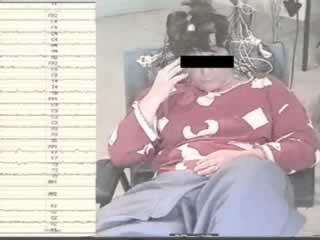Epileptic Disorders
MENUIctal SPECT in a case of pure musicogenic epilepsy Volume 5, issue 3, September 2003
- Key words: musicogenic epilepsy, temporal lobe epilepsy, reflex seizures, SPECT
- Page(s) : 133-7
- Published in: 2003
A 39‐year‐old, right‐handed woman had seizures for two years which were always triggered by exposure to various types of music: the first occurred while she listened to a tune she particularly liked, Con Te Partiro, by Andrea Boccelli. Other triggering factors were various types of music such as supermarket background music and polyphonic singing or instrumental music played by family members. The seizures had a stereotyped course: she felt anxious, tearful, then occurred slight obtundation, during which she smacked her lips and moved restlessly. There was no complete loss of consciousness, but some degree of amnesia. She never experienced a generalized tonic‐clonic seizure, but reported rare spontaneous feelings of déjà‐vu that had begun at the same time as the induced seizures. There were no other spontaneous attacks; only one seizure was apparently provoked, not by music but by a loud background noise in her office. She was a music lover and a singer. Interictal EEG showed independent slow waves over the temporal regions. Several seizures with EEG localisation over the right temporal region were elicited after several minutes of exposure to music. Monoauricular stimulation with the same music produced a seizure when applied to the left ear but was ineffective when applied to the right ear. Ictal SPECT demonstrated right temporal hyperperfusion. MRI was normal. On high dose of carbamazepine, seizure frequency decreased. The addition of topiramate resulted in full seizure control. Musicogenic epilepsy is a rare form of reflex epilepsy. Pure cases, when patients do not experience unprovoked seizures, are exceptional. Our report confirms the implication of the right temporal lobe in this epilepsy. [Published with video sequence].


